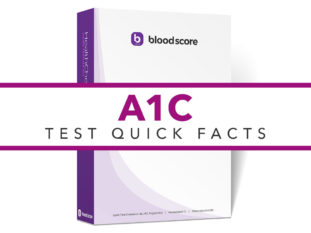The Secrets to Natural Blood Sugar Control
3 Steps to optimal blood sugar control
Even the healthiest people should monitor and work to optimize their blood sugar. Sugar seems so harmless, but you now know that too much sugar in your blood for too long (hyperglycemia) can lead to permanent body damage (e.g., heart disease, blindness, kidney failure and more).
The good news is that something so important is quite simple to improve. Just follow three simple steps to work toward natural blood sugar control:
- Test your A1C every 90 days
- Make a healthy lifestyle change if you’re not in the optimal range
- Follow your A1C trends and make a lifestyle change before you enter higher risk zones
The A1C test is the best for optimizing and monitoring your health because it reports an average blood sugar level for the previous 90 days. If you make a lifestyle change to optimize your blood sugar and stick to it for 90 days, your next A1C score will help you determine whether the lifestyle change is helping improve your health. Following your A1C score trends over time will alert you that it’s time to make a change to better control your blood sugar before you risk permanent damage to your body or a diagnosis of Prediabetes or Type 2 Diabetes.
Lifestyle changes for natural blood sugar control
Most health care providers will recommend that you begin by making one or more lifestyle changes. This means changing up something you do (or don’t do) on a nearly daily basis. The primary lifestyle changes fall into four major buckets: Diet, Exercise, Habits, Drugs.
Lifestyle changes associated with better blood sugar control:
- Diet: Diets low in carbohydrates and sugar have been shown to reduce spikes in blood sugar. Members with improved A1C scores have reported natural blood sugar control success with Mediterranean Diet, Low Carbohydrate diets, whole food diets, Paleo diets, and more.
- Exercise: Exercise helps burn excess sugar as fuel and also reduce the impact of insulin resistance (discussed in more detail in the Blood Sugar Basics post). Incorporating just 30-60 minutes of exercise most days per week may be enough to see a major impact on your A1C scores.
- Habits: What if you could sleep your blood sugar away? 8 or more hours of sleep per day has been associated with more optimal blood sugar levels. And, you know you need to kick the smoking habit for a lot of reasons, but not smoking is associated with better blood sugar control.
- Drugs: There are lots of over-the-counter supplements and natural remedies that might improve your blood sugar. Always talk to your healthcare provider about any new therapies, and you might need a prescription medication if your blood sugar is in a high-risk range.
Top Supplements associated with better blood sugar control*:
Some people – actually LOTS of people – need a little more help to get their blood sugar within optimal ranges, and these supplements might help.
Visit the Health Shop to learn more about products that have been selected based upon upon systematic literature review and Bloodscore Member Reports.
*Discuss all new supplements, remedies, and medications with your health care provider and take as directed. These dietary supplements have not been evaluated by the FDA and are not intended to diagnose, treat, cure or prevent any disease.
Find what makes you healthy!
Bloodscore helps you figure out which lifestyle change is likely to work best for your health goals. Bloodscore’s Shop products are backed by clinical evidence and selected by our Members because they work. That’s a good start, but we don’t stop there!
As you track your A1C score over time, you will easily see whether your lifestyle change is improving your health. We also give you personalized insight about lifestyle changes that are working well for other people with scores like yours.
Some examples include healthy diet, exercise, better sleep, and quitting smoking. After 90 days of trying your best to make lifestyle changes, check your Bloodscore and compare the results.
Sources:
https://labtestsonline.org/understanding/analytes/a1c/tab/test
http://www.mayoclinic.org/tests-procedures/a1c-test/home/ovc-20167930


